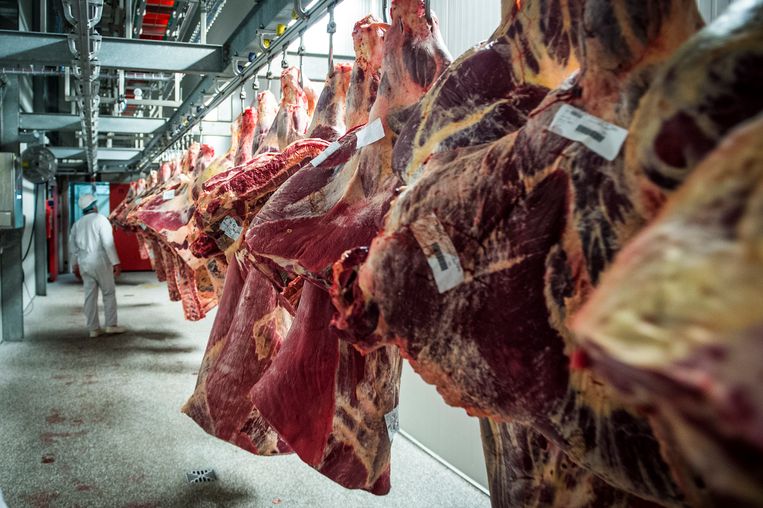So far, Belgium has not had to close slaughterhouses due to a coronavirus outbreak among staff members, mainly because the rules are much stricter than in the neighbouring countries, according to the sector.
In neighbouring countries, several slaughterhouses have been closed due to outbreaks, but this is not the case in Belgium. "There are much stricter rules for the slaughterhouses, as well as for the housing of migrant workers," said Griet Lemaire, director of the Flemish Information Centre for Agriculture and Horticulture (VILT) on Radio 1 on Monday.
On Sunday, over 600 employees of a slaughterhouse in the Netherlands were quarantined, because 45 of them tested positive for the new coronavirus (Covid-19). Recent weeks also saw outbreaks in Germany, France, Spain and the United States, among others. The working conditions and accommodation of the personnel abroad are the cause, according to Lemaire.
"The meat industry is not the most attractive employer. It is not easy to find personnel. The sector employs a lot of foreign workers," she said. "These people often work under a form of subcontracting or secondment," Lemaire added.
Additionally, unfavourable housing conditions of many migrants abroad also play their part, according to Lemaire. "In Germany, for example, the employees of the worst affected slaughterhouse all lived together in army barracks. The bathroom facilities and the kitchen are shared. This allows the virus to circulate very quickly," she added.
Related News
- Youth federations relieved that summer camps are allowed
- Coronavirus: second lockdown not ruled out
- How the size of your social bubbles is determined
The situation in Belgium is not comparable to other countries for two reasons, Lemaire said. "The first reason is that the meat industry federation quickly issued guidelines for slaughterhouses before the lockdown. This was a management plan for how they should deal with the coronavirus measures," she said.
The second reason is that Belgium also works with migrant workers, but not under the same conditions as its neighbouring countries.
"The meat sector was the first to agree to a protocol in 2012 with the government on how to tackle social fraud. This protocol regulates everything relating to working conditions and housing is very strictly," Lemaire said, adding that unannounced inspections are also part of it, both in the slaughterhouses and in the accommodations.
"The sector [in Belgium] has been regulated much more strictly. If slaughterhouses in Belgium are found to have an outbreak, the manager is the main responsible person. That is not the case abroad," Lemaire said.
Maïthé Chini
The Brussels Times

